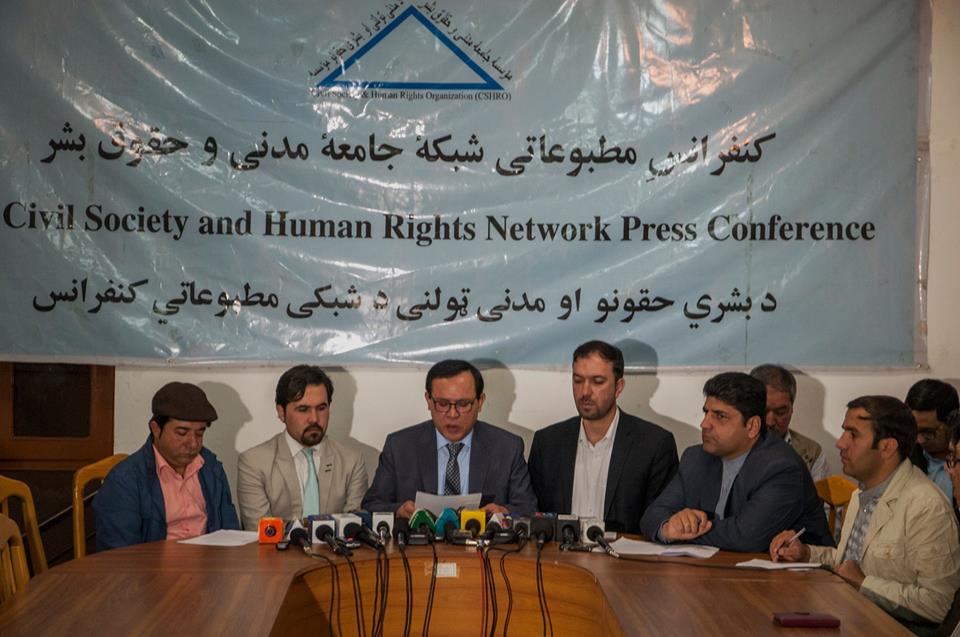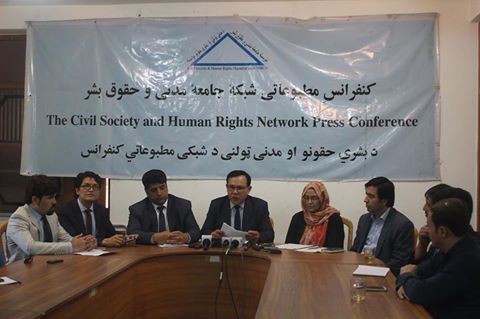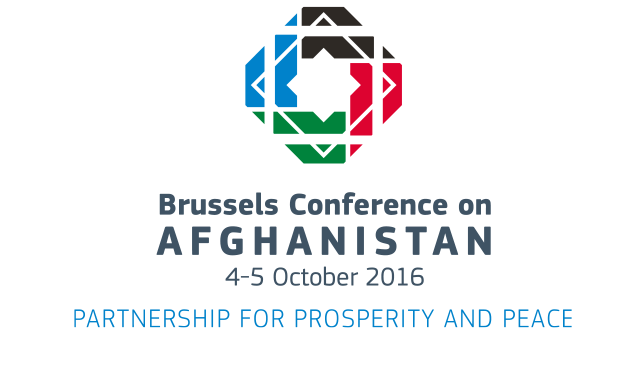In the name of Almighty Allah
Afghan organizations and Civil Society Activists Statement about “Joint way Forward” Union Treaty between Afghanistan and Europe on the return and deportation of asylum seekers and refugees, from Europe
October 20, 2016
Kabul, Afghanistan
Afghan immigration and refugees is once again at the top of the political agenda. It has been a hot topic for many decades now. Unfortunately, as a result of a long and terrible wars in Afghanistan, millions of Afghans have had to flee various conflicts. Today Afghans make up the second largest refugee population in Europe after Syria. Alone in 2015, around 196,170 sought asylum in Europe.
 Those who have fled Afghanistan recently include unaccompanied Afghan youth (the largest national group in Europe), families and other vulnerable groups of people. Seeking safety, work to allow them to survive, and hope for their secured future, they risked a dangerous journey to reach Europe. Many families lost their loved ones en route. Whole families were drowned, and young boys have been beaten, sexually assaulted, tear gassed, robbed and shot crossing Iranian, Turkish and European borders. There were many Afghans among the 4,000 people were drowned in 2015 in the Mediterranean Sea, and the 3,000+ have lost their lives until October 2016.
Those who have fled Afghanistan recently include unaccompanied Afghan youth (the largest national group in Europe), families and other vulnerable groups of people. Seeking safety, work to allow them to survive, and hope for their secured future, they risked a dangerous journey to reach Europe. Many families lost their loved ones en route. Whole families were drowned, and young boys have been beaten, sexually assaulted, tear gassed, robbed and shot crossing Iranian, Turkish and European borders. There were many Afghans among the 4,000 people were drowned in 2015 in the Mediterranean Sea, and the 3,000+ have lost their lives until October 2016.
In spite of all these risks, many Afghans reached Europe, especially a large number of Afghan refugees and immigrants, according to the immigration policies of Angela Merkel, the German Prime Minister, to undertake difficulties abound, reached Germany where at first they were welcomed. However, other countries failed to show the same generosity as Mrs. Merkel, and so Germany received almost all the Afghans coming in the last year, plus many, many Syrians.
Gradually, immigration policies of Angela Merkel, the German Prime Minister, was under internal pressures. As a result of this internal pressure, Merkel, personally called with President Ashraf Ghani and asked him to take the treaty and sign under the name of “Joint way forward “.
As a result of pressure from Europe Union consecutives on Afghan government feared of being cut off or decrease the aid, the Treaty “Joint Way Forward”, was voted in the Afghan parliament, despite clear objections of Minister of Refugees, the deal was passed and with the approval of the National Assembly, the Minister of Refugees not ready to sign the document. As a result, one of the Assistant Secretary of immigrants, to represent the Ministry of Refugees, signed the document.
Now, any Afghan whose case is not accepted will be quickly deported back to Afghanistan under a joint agreement between Afghanistan and EU called “Joint way forward”.
We the activists and civil society organization have gathered at press conference today to share our concerns regarding this deal that will put lives of thousands of people at stake.
- The deal has been processed in an un-democratic way by the EU. The agreement was not submitted to for scrutiny to the parliament of the European Union or any European state. Refugee rights organizations, supporters and defenders had no chance to argue against it.
- We have concerns Afghanistan is being used as a test case, and this policy will be used against refugees across the world.
- Afghanistan is already struggling to deal with hundreds of thousands of people returning from the neighboring countries. The government has failed to provide them with basic needs such as shelter and food. There is no infrastructure in place that would guarantee they will have a place to stay and job to survive. On the other hand there is at least 1.5 million IDPs currently in different part of Afghanistan. Most of which are due to deteriorating security situation in the country. Return of thousands of people in to an already existing problem will be chaotic for the Afghan government to deal with.

- Frontex will be responsible for managing the returns. Based on our experience and the accounts of the returnees met over the past several years. Frontex have been mistreating returnees during deportation process. Our concern is that deporting large number of refugees will be a tough job and hiring new employees for Frontex without proper training can put the safety of returnees at risk.
- In another part of the deal it has been mentioned that EU will support Afghanistan in creating job opportunities for the returnees. This is not the first time such promises has been made and yet there has been very little effect on the lives of the returnees. With unemployment for the general population so high, how can the problem of returnees be solved with poor and short employment programs. This sort of small packages wouldn’t be enough for migrants who have spent thousands of dollars to reach one of the European countries. As a result, the only option the returnees would remain with would be to re-migrate.
- Finally, recent studies such as “ After Return “ (RSN 2016), “what happens post-deportation” (Schuster & Majidi 2013, 2014) demonstrate that deportation to Afghanistan up to now has been a failure. A large number of those who have been returned over the past several years have already re-migrated, they are either in the neighboring countries, Iran or Pakistan, or further in to Turkey or another European country.
We believe this is not a good time for a deal like the “Joint Way Forward“. 24 hours after the deal was signed, Kunduz fell into the Taliban’s hands. It is clear the security situation is deteriorating and it will create more chaos and challenges for both the Afghan government and the EU once thousands of people are deported to Afghanistan with no basic infrastructure and livelihood in place.
Currently, Kunduz, Helmand, Farah, Uruzgan, Zabul, Baghlan, Faryab and many other provinces are facing insurgent attacks which clearly indicates volatile security situation of Afghanistan. We believe the government doesn’t have any sort of preparation to be able to accommodate a high number of returnees from Europe, amidst deteriorating security situation in the country. Choosing such a deal at this time is clearly not an ideal solution for both the returnees and the government. It will only create more problems and chaos for the both the returnees and the Afghan government.


